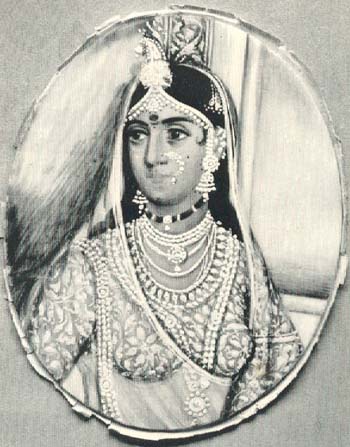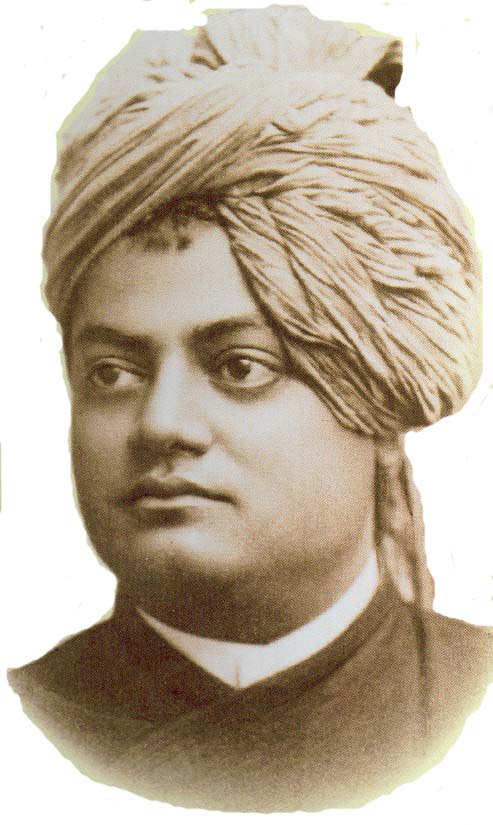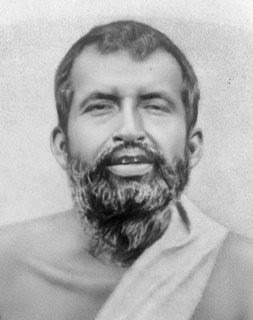skip to main |
skip to sidebar
 The birth of Siddhartha, (2nd-3rd century).
Siddhartha was born in Lumbini, Ancient India now in modern day Nepal. His father was King Suddhodana, the chief of the Shakya nation, one of several ancient tribes in the growing state of Kosala; Gautama was the family name. His mother, Queen Maha Maya (Mayadevi) and Suddhodana's wife, was a Koliyan princess. On the night Siddhartha was conceived, Queen Maya dreamt that a white elephant with six white tusks entered her right side, and ten lunar months later Siddhartha was born from her right side (see image right). As was the Shakya tradition, when his mother Queen Maya fell pregnant, she returned to her father's kingdom to give birth, but after leaving Kapilavastu, she gave birth along the way at Lumbini in a garden beneath a sal tree.
The birth of Siddhartha, (2nd-3rd century).
Siddhartha was born in Lumbini, Ancient India now in modern day Nepal. His father was King Suddhodana, the chief of the Shakya nation, one of several ancient tribes in the growing state of Kosala; Gautama was the family name. His mother, Queen Maha Maya (Mayadevi) and Suddhodana's wife, was a Koliyan princess. On the night Siddhartha was conceived, Queen Maya dreamt that a white elephant with six white tusks entered her right side, and ten lunar months later Siddhartha was born from her right side (see image right). As was the Shakya tradition, when his mother Queen Maya fell pregnant, she returned to her father's kingdom to give birth, but after leaving Kapilavastu, she gave birth along the way at Lumbini in a garden beneath a sal tree.
 The day of the Buddha's birth is widely celebrated in Theravada countries as Vesak. Various sources hold that the Buddha's mother died at his birth, a few days or seven days later. The infant was given the name Siddhartha (Pali: Siddhatta), meaning “he who achieves his aim”. During the birth celebrations, the hermit seer Asita journeyed from his mountain abode and announced that this baby would either become a great king (chakravartin) or a great holy man. This occurred after Siddhartha placed his feet in Asita's hair and Asita examined the birthmarks. Suddhodarna held a naming ceremony on the fifth day, and invited eight brahmin scholars to read the future. All gave a dual prediction that the baby would either become a great king or a great holy man. Kaundinya (Pali: Kondanna), the youngest, and later to be the first arahant, was the only one who unequivocally predicted that Siddhartha would become a Buddha.
The day of the Buddha's birth is widely celebrated in Theravada countries as Vesak. Various sources hold that the Buddha's mother died at his birth, a few days or seven days later. The infant was given the name Siddhartha (Pali: Siddhatta), meaning “he who achieves his aim”. During the birth celebrations, the hermit seer Asita journeyed from his mountain abode and announced that this baby would either become a great king (chakravartin) or a great holy man. This occurred after Siddhartha placed his feet in Asita's hair and Asita examined the birthmarks. Suddhodarna held a naming ceremony on the fifth day, and invited eight brahmin scholars to read the future. All gave a dual prediction that the baby would either become a great king or a great holy man. Kaundinya (Pali: Kondanna), the youngest, and later to be the first arahant, was the only one who unequivocally predicted that Siddhartha would become a Buddha.
Gautam Buddha Quotes
- If a man who has committed a misdemeanor come to the knowledge of it, reform himself, and practise goodness, the force of retribution will gradually exhaust itself as a disease gradually loses its baneful influence when the patient perspires.
- How easy it is to see your brother’s faults,
How hard it is to face your own.
- When an evil-doer, seeing you practise goodness, comes and maliciously insults you, you should patiently endure it and not feel angry with him, for the evil-doer is insulting himself by trying to insult you.
-
- Seeing the Way is like going into a dark room with a torch; the darkness instantly departs, while the light alone remains. When the Way is attained and the truth is seen, ignorance vanishes and enlightenment abides forever.
- Look not for recognition
But follow the awakened
And set yourself free.
- People cleave to their worldly possessions and selfish passions so blindly as to sacrifice their own lives for them. They are like a child who tries to eat a little, honey smeared on the edge of a knife. The amount is by no means sufficient to appease his appetite, but he runs the risk of wounding his tongue.
- For a while the fool’s mischief
Tastes sweet, sweet as honey.
But in the end it turns bitter.
And how bitterly he suffers!


.
 Rani Lakshmibai was one of the leading warriors of India’s freedom struggle who laid an outstanding influence on the succeeding women freedom fighters. She was a symbol of bravery, patriotism, respect of girl child, perseverance, generosity and resistance to British rule. She fought till her last breath for the welfare of women in the country and for the noble cause of India’s independence.
Rani Lakshmibai was one of the leading warriors of India’s freedom struggle who laid an outstanding influence on the succeeding women freedom fighters. She was a symbol of bravery, patriotism, respect of girl child, perseverance, generosity and resistance to British rule. She fought till her last breath for the welfare of women in the country and for the noble cause of India’s independence.
She got married to Raja Gangadhar Rao, the maharaja of Jhansi, in 1842. In 1851, she gave birth to a child who unfortunately died just four months after his birth. Being highly affected by this tragic incident Raja adopted Damodar Rao as his son. Even after that he was unable to come out of the tragedy of losing his son and ultimately died on November 21, 1853. Rani had faced great tragedies in life; she lost her mother at a very young age and then her husband at the age of eighteen. But, no tragedy was able to break her apart and courageously she took over all her responsibilities.
After the death of Raja of Jhansi, Lord Dalhousie, the Governor General of India, planned to annex Jhansi on the ground that it did not have any legal heir. Britishers refused to accept Damodar as the legal heir of Jhansi and in 1854, Rani of Jhansi was ordered to leave the fort after giving a pension of 60,000.
Being a patriotic woman, Rani was not willing to give the dominion of Jhansi to Britishers and called for an armed force. She successfully assembled an army of rebellions including women and was supported by many freedom fighters like Gulam Gaus Khan, Dost Khan, Khuda Baksh, Sunder-Mundar, Kashi Bai, Lala Bhau Bakshi, Moti Bai, Deewan Raghunath singh and Deewan Jawahar Singh.
In March 1858, Britishers attack on Jhansi forced Rani Lakshmi Bai’s army to fight back for the defense of the city. The war continued for two weeks but unfortunately Britishers were successful in extending their empire. Under the cover of darkness Rani along with her son and army of rebellions rode to Gwalior where again a battle was fought. The second day of the war in Gwalior unfortunately turned to be the last day of Rani’s life. Bravely fighting for India’ freedom, she died on June 18, 1858.

 Swami Vivekananda, known in his pre-monastic life as Narendra Nath Datta, was born in an affluent family in Kolkata on 12 January 1863. His father, Vishwanath Datta, was a successful attorney with interests in a wide range of subjects, and his mother, Bhuvaneshwari Devi, was endowed with deep devotion, strong character and other qualities. A precocious boy, Narendra excelled in music, gymnastics and studies. By the time he graduated from Calcutta University, he had acquired a vast knowledge of different subjects, especially Western philosophy and history. Born with a yogic temperament, he used to practise meditation even from his boyhood, and was associated with Brahmo Movement for some time.
Swami Vivekananda, known in his pre-monastic life as Narendra Nath Datta, was born in an affluent family in Kolkata on 12 January 1863. His father, Vishwanath Datta, was a successful attorney with interests in a wide range of subjects, and his mother, Bhuvaneshwari Devi, was endowed with deep devotion, strong character and other qualities. A precocious boy, Narendra excelled in music, gymnastics and studies. By the time he graduated from Calcutta University, he had acquired a vast knowledge of different subjects, especially Western philosophy and history. Born with a yogic temperament, he used to practise meditation even from his boyhood, and was associated with Brahmo Movement for some time.

In the course of a short life of thirty-nine years (1863-1902), of which only ten were devoted to public activities-and those, too, in the midst of acute physical suffering-he left for posterity his four classics: Jnana-Yoga, Bhakti-Yoga, Karma-Yoga, and Raja-Yoga, all of which are outstanding treatises on Hindu philosophy. In addition, he delivered innumerable lectures, wrote inspired letters in his own hand to his many friends and disciples, composed numerous poems, and acted as spiritual guide to the many seekers, who came to him for instruction. He also organized the Ramakrishna Order of monks, which is the most outstanding religious organization of modern India. It is devoted to the propagation of the Hindu spiritual culture not only in the Swami's native land, but also in America and in other parts of the world. Swami Vivekananda once spoke of himself as a "condensed India." His life and teachings are of inestimable value to the West for an understanding of the mind of Asia. William James, the Harvard philosopher, called the Swami the "paragon of Vedantists." Max Muller and Paul Deussen, the famous Orientalists of the nineteenth century, held him in genuine respect and affection. "His words," writes Romain Rolland, "are great music, phrases in the style of Beethoven, stirring rhythms like the march of Handel choruses. I cannot touch these sayings of his, scattered as they are through the pages of books, at thirty years' distance, without receiving a thrill through my body like an electric shock. And what shocks, what transports, must have been produced when in burning words they issued from the lips of the hero!''
 Sri Ramakrishna was born Gadadhar Chatterjee in 1836 at Kamarpukur about sixty miles from Calcutta. His parents, Khudiram and Chandramani, were poor and made ends meet with great difficulty.
Sri Ramakrishna was born Gadadhar Chatterjee in 1836 at Kamarpukur about sixty miles from Calcutta. His parents, Khudiram and Chandramani, were poor and made ends meet with great difficulty.
Sri Ramakrishna Paramhansa Quotes and Sayings
- Take shelter in God.
- If you meditate on an ideal you will acquire its nature. If you think of God day and night, you will acquire the nature of God. A salt doll went into the ocean to measure its depth. It became one with the ocean.
- You should live in the world in a spirit of detachment.
- The body has, indeed, only a momentary existence. God alone is real. Now the body exists, and now it does not.
- He who has realized God has obtained the fruit of Immortality—not a common fruit like a gourd or a pumpkin. He is free from rebirth. He is not born anywhere—on earth, in the solar world, or in the lunar world.
- All sins vanish if one only remembers God. His name breaks the fetters of death. You must dive; otherwise you can’t get the gem.
- As without strong determination the farmer cannot bring water to his field, so also without intense yearning a man cannot realize God.
- If a devotee prays to God with real longing, God cannot help revealing Himself to him.
- What can you achieve by mere lecturing and scholarship without discrimination and dispassion? God alone is real, and all else is unreal. God alone is substance, and all else is nonentity. That is discrimination
- Man cannot see God on account of his ego. You cannot see the sun when a cloud rises in the sky. But that doesn’t mean there is no sun; the sun is there just the same.
- The sign of a man’s having realized God is that he has become like a dry coconut. He has become utterly free from the consciousness that he is the body. He does not feel happy or unhappy with the happiness or unhappiness of the body. He does not seek the comforts of the body. He roams about in the world as a jivanmukta, one liberated in life.
- The aim of life is the attainment of God.
- Why shouldn’t a man be able to realize God in the world? But he must have discrimination and dispassion; he must have the unshakable awareness that God alone is real and all else is unreal and has but a two days’ existence. It will not do to float on the surface. You must dive deep.
- The worldly man is a hypocrite. He cannot be guileless. He professes to love God, but he is attracted by worldly objects. He doesn’t give God even a very small part of the love he feels for ‘woman and gold’. But he says that he loves God.
- All trouble and botheration come to an end when the ‘I’ dies.
- The thing is somehow to unite the mind with God. You must not forget Him, not even once. Your thought of Him should be like the flow of oil, without any interruption. If you worship with love even a brick or stone as God, then through His grace you can see Him.





















